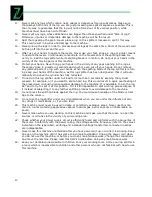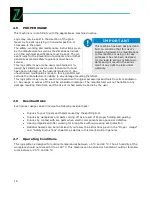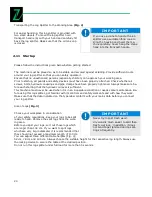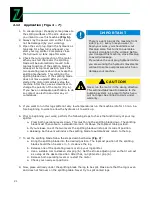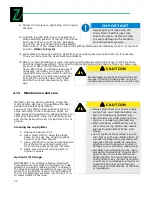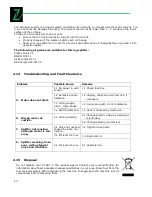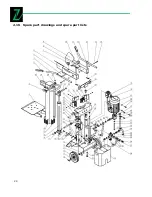
20
Transporting the Log Splitter to the Working Area
(Fig. 2)
For easier handling, this log splitter is provided with
two small wheels. To move the log splitter hold
transport handle (A) with your hand and carefully tilt
back the log splitter. Make sure that the oil tank cap
is closed.
2.11
Startup
Please follow the instructions given below before getting started:
The machine must be placed so as to be stable and secured against skidding. Provide sufficient room
around your log splitter so that you can safely operate it.
Ensure that no unauthorized persons (especially children) can approach your working area.
Prior to startup, all guards and safety devices must have been properly attached. Check whether all
screws, bolts, hydraulic couplings and pipe clamps have been properly tightened. Always make sure be-
fore each starting that the hydraulic oil level is sufficient.
This machine must never be used when it is in an inoperable condition or needs some maintenance. Be-
fore using this log splitter, get familiar with its controls and safety elements and with how they work.
Make sure that the data indicated on the type label conform with your mains data before you connect
your log splitter.
Size of Logs
(Fig. 3)
Choose your workplace in consideration
of your safety regulations. Keep your logs to be split
ready to hand. Remove the split logs from the work-
ing area.
Before you split your logs, sort out those logs which
are longer than 104 cm. If you want to split logs
which are very big in diameter it is recommended that
they should not exceed a maximum length of 100 cm.
You can adjust three different table heights (Fig. 3):
52 cm, 78 cm and 104 cm. Always choose the suitable height for the respective log length. Always use
the locking device to secure the table at the desired position.
Do not run this log splitter under full load for more than 5 seconds.
I M P O R T A N T
If you use a crane to handle the log
splitter use a suitable lifting rope to
sling the housing and hoist the ma-
chine carefully. never hang the crane
hook into the transport handle.
I M P O R T A N T
Never try to split fresh wood.
dry wood is much easier to split than
fresh, wet logs. in addition, it does
not tend to get jammed during split-
ting so frequently.
Summary of Contents for ZI-HS7
Page 3: ...3 Fig 1 Fig 1 1 ...
Page 4: ...4 Fig 1 2 Fig 1 3 ...
Page 5: ...5 Fig 8 ...
Page 13: ...13 1 16 Výkres a seznam náhradních dílů ...
Page 24: ...24 2 16 Spare part drawings and spare part lists ...
Page 27: ...27 ...












